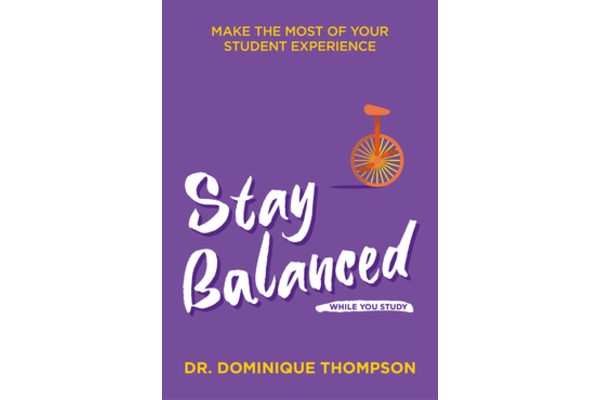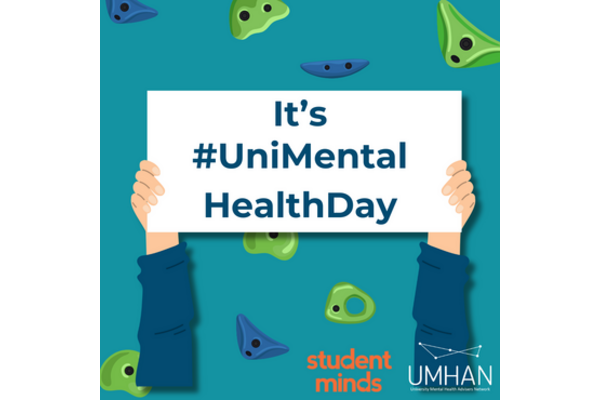Stay Balanced While You Study by Dr Dominique Thompson (2020)
As a Mental Health Mentor, whose days are filled with appointments, I often fall in the trap of buying ambitiously large books that are doomed to the “I will read when I have time” shelf. One of the many appeals of the stay balanced book is that at less than 100 pages, it makes an accessible grab-and-go read, that you can dip in and out of and carry in your bag for quieter moments in the day. For that very reason, it makes it an appealing offer to students seeking self-help material, as it is not an overwhelming volume to balance against their ever-growing course reading lists. The easy to follow structure of the chapters contains a breakdown of the unhelpful coping strategy, questions to explore if this coping strategy is becoming problematic, suggestions on how to manage the behaviour or strategy, student stories to place this into context, and ways for a student to support a friend who is experiencing this issue. The book offers realistic and practical advice rather than just stop/ or reduce the behaviour, offering the reader a roadmap of what to do if something that was at one time helpful but has now become rather unhelpful.
At its essence, it seeks to normalise why students may go to seemingly the most harmful of strategies ranging from comfort eating to self-harm, and offers compassion to the reader for how this has manifested. In its acknowledgement of the how and the why it helps communicate understanding, serving to deconstruct shame around that behaviour, encouraging students to acknowledge the issue and seek help. Dr Thompson writes in such a way that provides a human approach to problematic behaviour that centres around non-judgement and acceptance. This is demonstrated in the use of snippets of neuroscience that offer accessible psychoeducation to the reader; for example, it details why at certain ages we are biologically more drawn to and responsive to risk, further emphasizing the case for self-compassion and understanding rather than blame and self-hatred.
Dr Thompson provides inspiration for self-care activities, and alternatives to harmful behaviour throughout every topic she covers in her book. The resource section at the end, is a useful section offering specialist websites, podcasts etc corresponding with the areas covered in the book to help a student know where to get support or for professionals to signpost to. The book also acknowledges, an issue that often comes up in mentoring sessions, is students trying to support other students with mental health issues or who are engaging in risky behaviours. I have found that students often end up in the role of helper/carer and take on far too much responsibility that is often detrimental to their own wellbeing. The book deals with this key theme of supporting others well, in acknowledging the positives of this, i.e. the caring nature of the student, but also how to take care of themselves in that through knowing personal limits and setting boundaries to keep the student safe. It dedicates a section to supporting friends throughout each particular issue offering tailored suggestions and also a standalone chapter. I can envision how helpful it would be to utilise this information in student sessions to help students set healthy boundaries and taking care of themselves as a priority.
One of the key messages in the book is encouraging students to seek help and connect with others, this is delivered in a comforting and encouraging way. It appears to try to counteract some of the common barriers to speaking out like “I am not worthy”, or “No-one would want to help me”, “I won’t waste their time” that is common in those struggling to seek support. It offers reassurance and encouragement that professionals and university staff are there to listen and help and most importantly it provides hope that things that can be learnt can be unlearnt or adapted to help the student go on to lead a fulfilling life at university.
Lauren Weaving.









